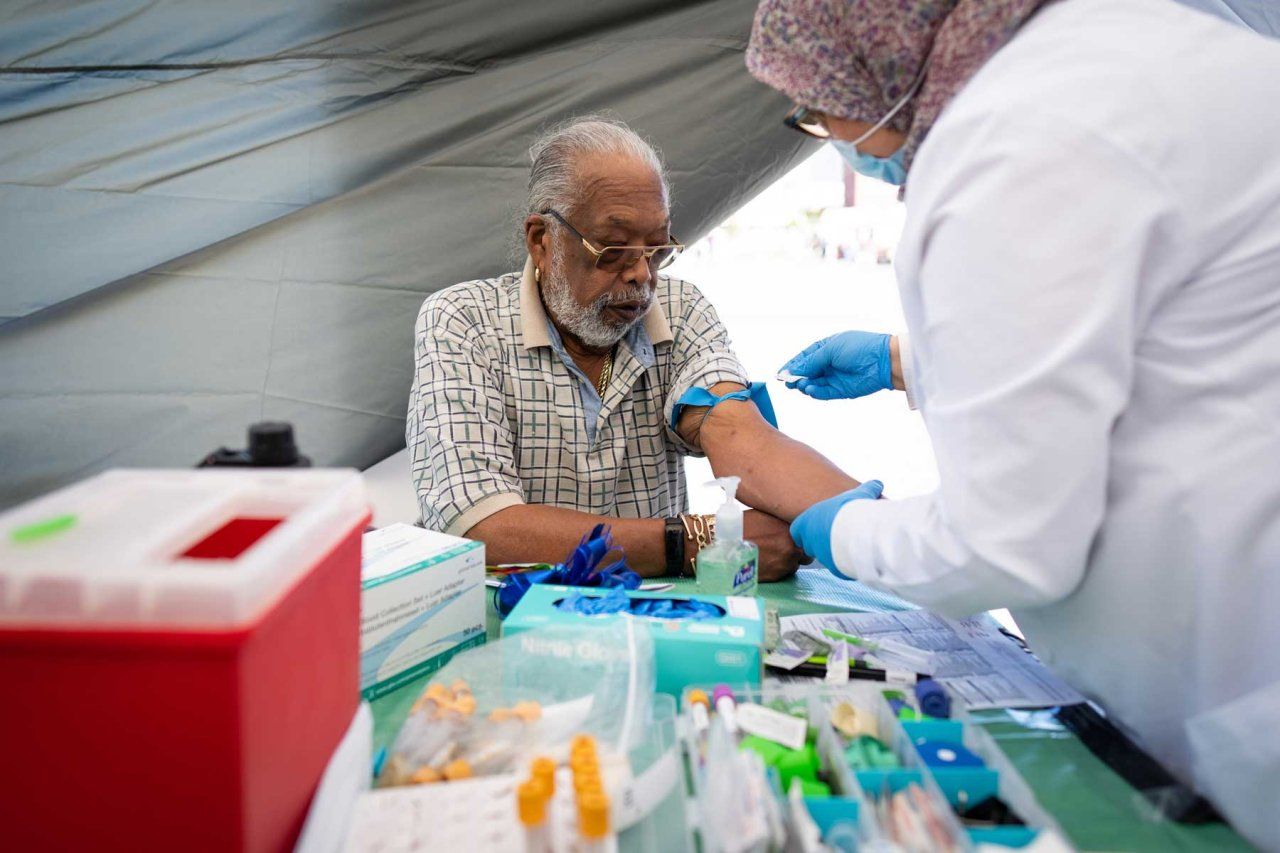
"Later," James McCray Jr. told himself, he'd deal with it later.
McCray was the long-time pastor of Jones Memorial United Methodist Church, located just blocks away from UCSF Medical Center at Mount Zion. In fact, early in his tenure, McCray partnered with the medical center's doctors to conduct health education among the congregation.
In 2004, Mount Zion doctors conducted prostate cancer screenings at the chapel.
"The church's health ministry had publicized everywhere that Dr. McCray was going to lead us in the digital examination for cancer," remembers McCray.
"Well," he says, laughing, "I soon found out that 'digital' was not what I thought it was."
As part of a digital rectal exam, a physician feels the back wall of the prostate gland for swelling, tenderness and lumps that could be signs of cancer. McCray's exam revealed his prostate was swollen, and doctors urged him to go to his medical provider for more tests.
"I said, 'Yeah, okay - when I get back from vacation.'"
Looking back now, he adds. "You should never do that."
Prostate cancer kills more than twice as many Black men
Nationally, 1 in 8 men will be diagnosed with prostate cancer during their lifetime. Most will survive. But Black men are more likely to be diagnosed with the cancer and more than twice as likely to die from it than their white peers, explains UC San Francisco Associate Professor, Medicine Nynikka Palmer, DrPH, MPH.
This is why Black men should start getting screened for prostate cancer between the ages of 40 and 45 with prostate-specific antigen (PSA) blood tests. Based on initial results, men and physicians should discuss how frequently to repeat the test in the future.






